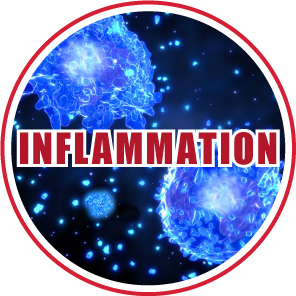
Our Findings
Stress, Neighborhood Violence, and Health.
Learn how stress, violence, and health disparities contribute to higher lung cancer and disease risks in Black men. Also see below for helpful resources to take action for your health and get involved with your community.
Black men have higher rates of death for several diseases, including lung cancer.
Being exposed to neighborhood violence may increase your risk of lung cancer and other diseases.
-
The body's response to physical, mental, or emotional pressure (NCI)
-
Weakened immune system
Heart disease
High blood pressure
High blood sugar
Digestive Issues
Nerve problems
Anxiety depression headaches
-
The body’s chemical response to fight infection or heal damaged body parts. Too much unnecessary inflammation can be bad for your body. (NCI)
-
Lung disease
Heart disease
Arthritis
Autoimmune disease
Ulcers
Bowel disease
Nervous disorders
-
Your body getting worse at healing itself
-
Difficulty in fighting off infection
Contributes to chronic disease
-
Unhealthy behaviors people engage in to ease their pain.
-
Smoking
Drinking
Unhealthy diet
Lack of physical activity
-
The body's response to physical, mental, or emotional pressure (NCI)
-
Wear and tear on the the body due to chronic stress
Faster biological aging
Increase risk of disease such as cancer
One way this is possible is through
chronic stress. Our research explored how being exposed to neighborhood violence can increase stress.
Stress can be measured by the stress hormone CORTISOL, which can be detected in your hair. Cortisol is a hormone produced by the adrenal glands that plays a key role in regulating stress, metabolism, and immune response. It helps the body manage how it uses fats, proteins, and carbohydrates, while also influencing blood pressure and sleep cycles. Elevated cortisol levels over time can lead to negative health effects, including weight gain, anxiety, and weakened immunity.
Health disparities can lead to both short and long-term stress. This increase in stress contributes to poor health and lung cancer risk.
This may help explain why Black men have higher rates of lung cancer.
What can be done?
Take Charge of Your Lung Health
Lung Cancer Screenings
An interactive tool and information on screening centers.
Smoking
Cessation
Resources and support from the Illinois Tobacco Quitline
Stress Management
Strategies for managing stress, including therapy options and community support.
Explore Community Resources
Discover local support groups, wellness events, and opportunities to become a citizen scientist, empowering yourself and contributing to ongoing efforts to address health disparities in Chicago.
-
Engaging with your community can be a great way to reduce stress and improve mental health. Explore the local organizations and events on our Take Action page.
-
Citizen scientists are local community members who learn scientific principles to help with cancer research. Contact Dr. Rohan Jeremiah at rjerem@uic.edu for more information.















